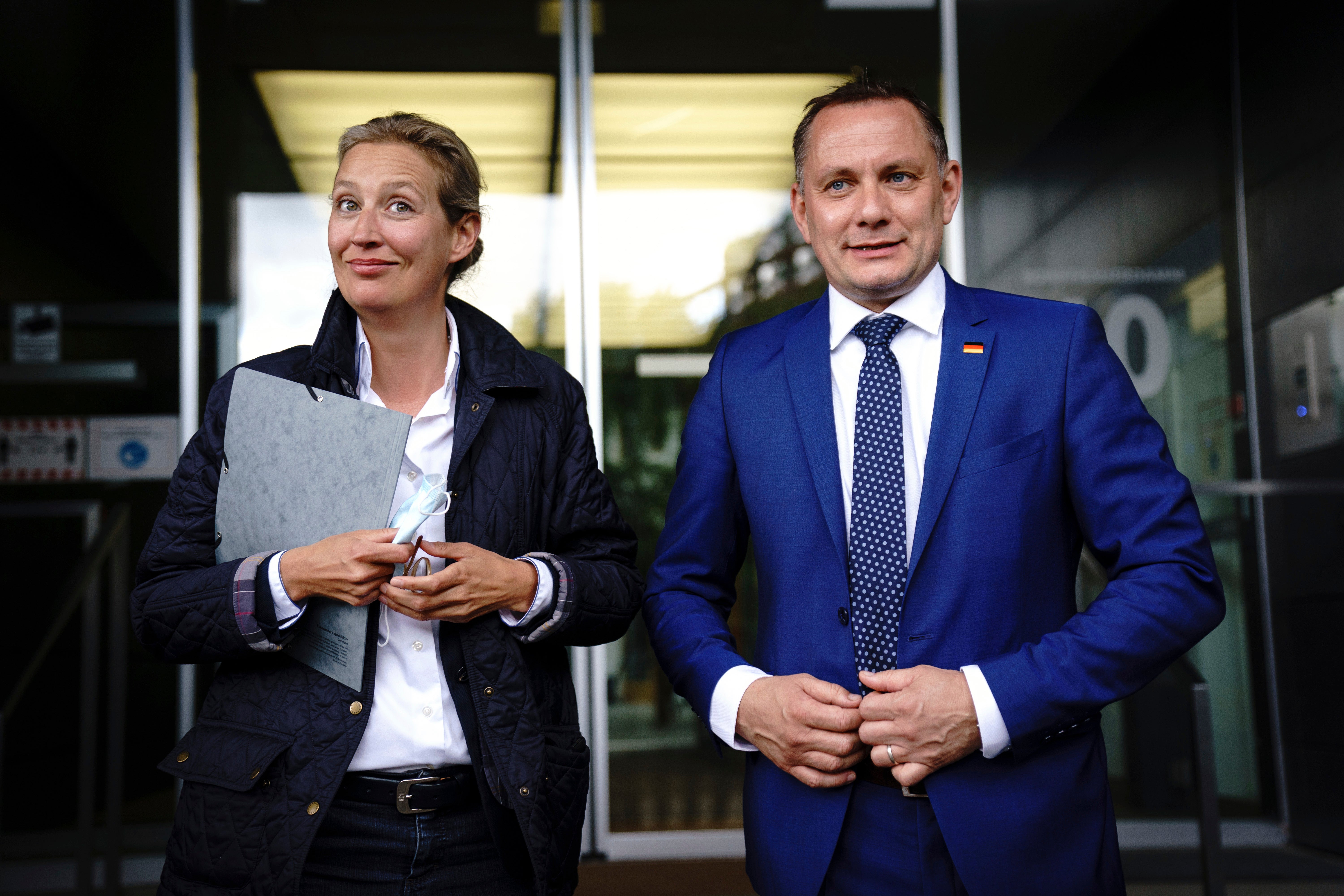German prosecutors say witness evidence so far doesn't suggest a far-right leader was assaulted
German news agency dpa is reporting that prosecutors have said that testimony from witnesses hasn’t revealed any indication so far that a co-leader of the far-right Alternative for Germany party was assaulted at an election rally

Your support helps us to tell the story
From reproductive rights to climate change to Big Tech, The Independent is on the ground when the story is developing. Whether it's investigating the financials of Elon Musk's pro-Trump PAC or producing our latest documentary, 'The A Word', which shines a light on the American women fighting for reproductive rights, we know how important it is to parse out the facts from the messaging.
At such a critical moment in US history, we need reporters on the ground. Your donation allows us to keep sending journalists to speak to both sides of the story.
The Independent is trusted by Americans across the entire political spectrum. And unlike many other quality news outlets, we choose not to lock Americans out of our reporting and analysis with paywalls. We believe quality journalism should be available to everyone, paid for by those who can afford it.
Your support makes all the difference.German prosecutors said Friday that testimony from witnesses hasn't revealed any indication so far that a co-leader of the far-right Alternative for Germany party was assaulted at an election rally, German news agency dpa reported.
Tino Chrupalla was given medical treatment and then taken to a hospital shortly before he was due to speak at an election rally in Bavaria on Wednesday. Chrupalla's party, known by its German acronym AfD, said at the time that he was hospitalized after a “violent incident.”
Chrupalla was discharged from a hospital in Ingolstadt on Thursday and all scheduled election campaign events in Bavaria were canceled.
Prosecutors said that after witness questioning, there is “no basis” for information contained in a preliminary letter from a hospital doctor, which indicated that Chrupalla may have been jabbed with a needle from a syringe while taking selfies in the crowd before walking towards the stage where he was due to give a speech.
“The witnesses did not observe the supply of an injection or a physical assault,” the statement said.
Prosecutors also confirmed that after a forensic investigation, Chrupalla’s blood tests were all within normal limits. Prosecutors were only able to detect an intake of painkillers “within therapeutic range.”
German prosecutors, however, added that they were continuing their investigation of an alleged physical assault of Chrupalla with additional witness questioning and an examination of Chrupalla’s clothing.
Chrupalla, 48, has been one of the AfD’s two leaders since 2019. The other co-leader is Alice Weidel.
The party was founded in 2013, initially with a focus against eurozone rescue packages. It gained strength following the arrival of a large number of refugees and migrants in 2015, and first entered Germany’s national parliament in 2017.
Recent national polls have put it in second place with support around the 20% mark, far above the 10.3% it won during the last federal election in 2021. It has been helped by the reemergence of migration as a leading political issue and by frustration with the government’s climate and energy policies, as well as high inflation.